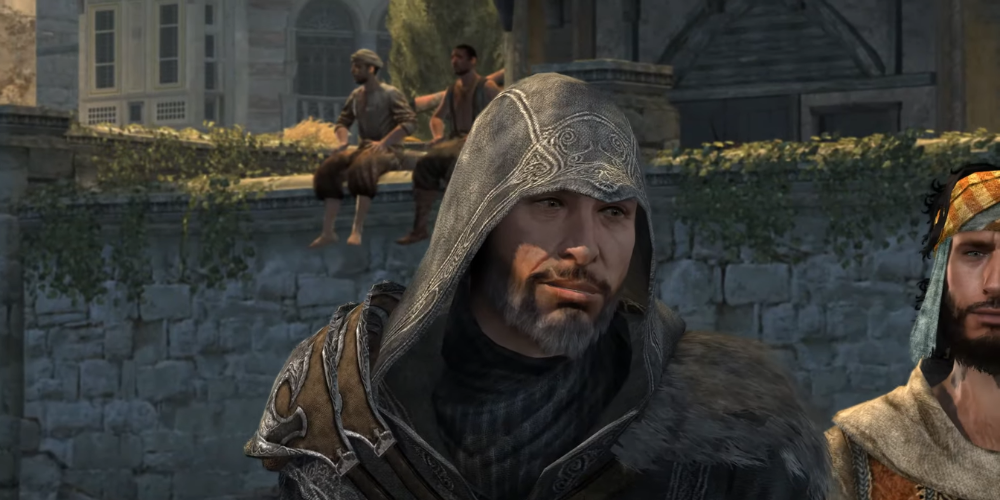The Evolution of Assassin's Creed: Analyzing Gameplay and Stories Across the Series
Jun-21-2024

Ubisoft's Assassin's Creed series has held an esteemed position within the gaming industry since it first captured the imaginations of players worldwide back in 2007. Set against the backdrop of an engaging blend of historical fact and fiction, the series has built its reputable standing through a captivating mix of stealth, action, and strong narrative threads. The uniqueness of this original series lies not just in its play mechanics but also in the historical eras it encompasses.
From its first installation, players were transported to the Holy Land amidst the bustling streets and towering spires of the Third Crusade. This historical setting laid an exciting foundation upon which the series only continued to build. Since this initial release, the worlds of Assassin's Creed have only grown larger and more diverse, encompassing numerous stunning locations and eras.
The series has seen us stealthily navigate the shadowy corners of Victorian London, become intertwined in the political machinations of Ancient Greece, and brave the harsh wilderness of Viking Age England, among many others. Each setting offers its own unique flair, showcasing the breadth of human civilization and the richness of our shared history.

However, the Assassin's Creed journey is not just about time travel. In this article, we set our sights on exploring how the series has evolved over time. Not only will we take into account the changes in its historical scenery, but we will also delve deeper into how the strategies, gameplay mechanics, and storytelling approaches have been refined and enhanced with each subsequent release.
The Dawn of the Assassin: Assassin's Creed to Assassin's Creed II
The debut of the Assassin's Creed series marked a significant milestone in the gaming landscape. This inaugural game introduced players to a thrilling and intricate world built around the clandestine conflict between the Assassin Brotherhood and the Templar Order. Threading between historical authenticity and imaginative creativity, the game set forth a captivating premise that would underscore the plotlines for the series to follow.
Wrapped in mystery, the Assassin Brotherhood represents an underground faction devoted to preserving humanity's free will. Opposing them stands the Templar Order, a powerful legion bent on overseeing humanity through control and manipulation. This complex rivalry backdrop enhances the overall gaming experience from both narrative and gameplay perspectives. The player, thus, finds himself caught within the clandestine storm of this timeless war, setting the tone for the entire series.

The second offering within the Assassin's Creed series, Assassin's Creed II, signified a remarkable leap forward in terms of both story and gameplay mechanics. This stage saw the introduction of the charismatic and relatable protagonist, Ezio Auditore - a character who won the hearts of players for his rich background and growth throughout his journey.
Enhanced gameplay mechanics accompanied Ezio's riveting storyline, bringing well-appreciated improvements to the game. Among these was the introduction of more diverse and immersive mission designs that moved far beyond the primarily assassination-centric tasks of the first game. Character advancement also played a significant role in this sequel, opening a plethora of avenues for character skills and equipment upgrades, thus enriching the overall player gaming experience. This evolution in mechanics stirred a creative refresh within the series, effectively broadening its appeal to the gaming community.
The Golden Era: Brotherhood to Black Flag
The legacy of Assassin's Creed continued to unfold with the release of Assassin's Creed: Brotherhood and Assassin's Creed: Revelations. These two games served to deepen the series' established formula, both in terms of gameplay mechanics and story aspects, resulting in a more immersive and integrated gaming experience for the players.

Primarily, these chapters brought about a further focus on the protagonist, Ezio Auditore, who had captured the hearts of the fans in Assassin's Creed II. Benefiting from creative storytelling and a more prominent role, Ezio's character evolution was placed under the spotlight, fostering a deeper connection between the players and the unfolding narrative. The sagas incorporated around his life showcased a living, breathing character who grew and matured with each passing installment.
Moving on to the next critical era of the series, Assassin's Creed III brought about a significant change in scenery and narrative by placing itself against the backdrop of the American Revolution. This brave new playground added a novel dimension to both the environmental aesthetics of the game, accented with wild frontiers and colonial towns and to its storyline. While it deviated from Ezio's storyline, it bridged the gap by exploring the ideological conflict from a fresh perspective, deepening the series' grand narrative taxonomy.
Finally, the series sailed into uncharted seas with Assassin's Creed: Black Flag. Here, the dynamics of the game underwent a maritime metamorphosis, seeing naval combat and swashbuckling pirate adventures taking center stage. A far cry from the formulaic rooftops and narrow streets of the past games, Black Flag breathed a gust of exhilarating sea air into the series. It pushed the boundaries of what an Assassin's Creed game can be, reshaping the series landscape, enriching the gameplay experiences, and projecting a promising horizon for the future chapters of Assassin's Creed.
Experimentation: Unity, Syndicate to Assassin's Creed: Odyssey

Assassin's Creed: Unity and Assassin's Creed: Syndicate tried newer mechanics such as cooperative multiplayer and dual protagonists. Though these did not resonate with all fans, they demonstrated Ubisoft's willingness to innovate. Assassin's Creed: Origins was developed to revamp the gameplay entirely, focusing on RPG aspects, while Assassin's Creed: Odyssey moved the series further into the RPG realm with more player choice and a greater focus on narrative.
The New Age: Valhalla and Beyond
The latest entry, Assassin's Creed: Valhalla, took the series in a new, gloriously disheveled direction, replacing the sophisticated assassins with brutal Vikings. While retaining the RPG elements of the former two entries, its story and setting brought fresh elements to the franchise.
Conclusions: A Constantly Evolving Legacy
One of the impressive aspects of the Assassin's Creed series is its commitment to evolution and improvement. Despite missteps, the series keeps on introducing new gameplay mechanics and stories set in different periods. The future of the franchise remains bright, open to a multitude of historical periods and cultures still unexplored. The Assassin's Creed series is a shining example that evolution and adaptation are the keys to keeping a long-running series fresh.







